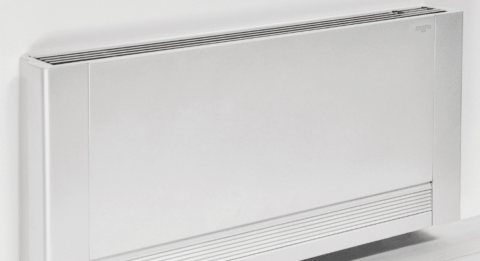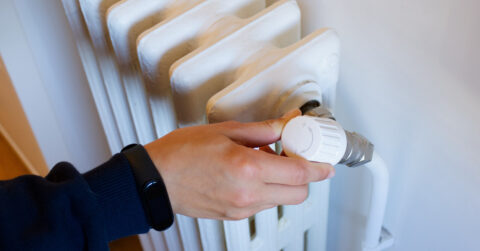Convincing customers of the benefits of solar panels is usually not that complicated. Whereas the enthusiasm dropped off temporarily recently, demand has now picked up considerably. The benefit of a heat pump is also easy to explain. With a home battery this is more nuanced and as an installer you have more to explain. What are useful applications to draw attention to?
A home battery, of course, is used primarily and first and foremost to store the self-generated power from solar panels that is not consumed immediately for later. After all, in practice, the times when the sun shines in abundance do not usually coincide with the times when demand for power is at its highest. Storing solar power locally so that customers can benefit from it themselves at a later time is therefore always a good idea.
Offsetting
Thanks to the net-metering scheme, which to the relief of many will not be abolished after all, excess power can of course be supplied to the grid. After which, at a later date, the same amount of power may be 'taken back' free of charge (net-metering). This unfortunately makes a home battery less easily recoverable, that's just a fact. Fortunately, there are additional benefits that can convince a customer to make the purchase.
Lower fees
Even though the net-metering scheme remains in place, feeding power into the grid is now less attractive than it used to be. More and more power companies are charging feed-in fees and feed-in compensation is also under pressure. All in all, this makes it a bit more attractive for customers to keep their own power without having to pay additional supplier costs. Incidentally, it is possible that the balancing scheme will eventually be up for discussion again, but your customers will not be affected.
Supply and demand
As power rates increasingly depend on supply and demand, a home battery is perfect for use as a temporary buffer. During the day when the sun is shining and both feed-in fees and power prices are low, a customer can store their own power locally. Only to then feed it into the grid in the evening or on weekends, when the demand for power is actually high and the fees are a lot more attractive.
However, this only applies to power that the customer does not need, since not only the feed-in tariff but also the price of power is higher during these periods, so you don't want to buy additional power. In this way, customers immediately make a nice contribution to relieving the burden on the power grid at peak times. In practice, the most convenient way to do this is automatically via smart software. Of course, this advantage only applies to dynamic or variable tariffs.
Dynamic contract
Even if a customer does not (yet) have solar panels, the home battery can play a nice role once a dynamic (or possibly variable) energy contract has been or is being concluded. After all, by charging the home battery as much as possible from the grid at low rates, this cheaper power can be used perfectly during periods of high power rates. Again helped by smart software, the customer can thus realize nice savings. Furthermore, energy suppliers are increasingly offering additional rewards to encourage customers to buy extra power at times when there is a large power surplus. Something to keep a close eye on.
Without hiccups
Bridging power outages is another nice bonus. Granted, our power grid is not exactly fickle, but power outages can never be completely ruled out and unfortunately always come at a time that is totally inconvenient. Then it's quite a relief that your customer can bridge a power outage thanks to the home battery. What does happen more and more often, however, is that inverters fail as a result of a temporary overload of the grid, which means that the grid has indeed become somewhat more unstable.
Self-sufficient
Finally, something that is difficult to measure and put into numbers, but can certainly weigh heavily with customers. That is the high degree of self-sufficiency and the idea that you are doing everything possible to use (only) renewable energy. This is primarily a matter of feeling or even principle, but for that very reason it can be an important motivator for quite a few customers to purchase a home battery.












